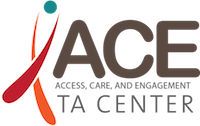ACE TA Center

This searchable page features questions commonly asked during ACE TA Center webinars on Medicare. FAQs and answers are arranged into six categories:
- Medicare Costs and Coverage
- Medicare Eligibility and Enrollment
- Transitioning to Medicare from Another Form of Health Insurance, Deferring Enrollment, and Penalties
- Social Security - Work Credits and Disability
- Financial Assistance for Medicare Costs
- Medicare-Medicaid Dual Eligibility
Frequently Asked Questions
Displaying 51 - 55 of 55
Part of Collection
Browse for More
Source
Topic Areas
Resource Type
Language